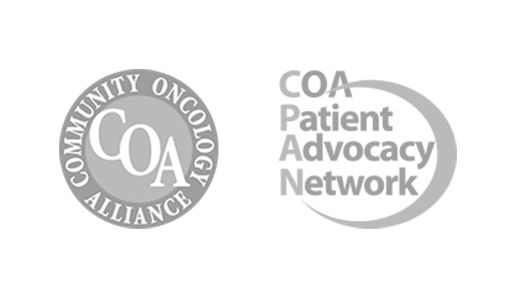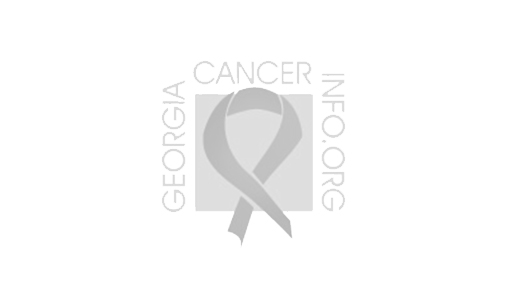The Importance of Seeking Out Colon Cancer Treatment
Roughly 140,000 Americans will be diagnosed with colon cancer this year. Worse, over 50,000 will die. But of those who make it, 92 percent will survive beyond 5 years, with most going on to live the rest of their lives in peace.
The catch is that the 92 percent only applies to patients who are diagnosed with Stage I colon cancer. Patients diagnosed with a more severe class of colon cancer face lower survival rates.
Those who take no steps to treat their cancer face even worse odds. Quick question: Has YOUR cancer been treated yet? If not, you’re doing yourself a grave disservice.
And a very costly one at that. The earlier your cancer is diagnosed AND treated, the higher your chances of survival. If you haven’t received out colon cancer treatment yet from highly trained professionals, NOW is the time to take action.
That said, I know you’re scared, so let’s address some of the key concerns you might have.
Colon Cancer Treatment Myths
You Must Wear A Colostomy Bag
Being treated for colon cancer does NOT mean you must wear a colostomy bag.
Randall Holcombe, MD, a New York-based hematologist and oncologist, notes that “[s]urgery has improved dramatically over the last decade, and the need for colostomy bags has been greatly reduced.”
The Susan Cohan Colon Cancer Foundation concurs. It points out that having colon cancer in 2018+ isn’t like “having it twenty, ten or even five years ago.” Why? Because technology and medicine have advanced.
As a result, doctors are able to take advantage of “[m]inimally invasive surgical techniques, more targeted and effective radiation and chemotherapy treatments, laser technology and” more.
And even if you wind up needing a colostomy bag (if your cancer is in a very late stage), chances are you’ll only need it on a temporary basis. Think a few months max.
It’s Too Late For Treatment
According to the American Society for Gastrointestinal Endoscopy, one of the most harmful myths about colon cancer is that once you’re diagnosed, it’s too late for you. This is false.
While it’s true that late detection of any cancer can reduce your chances of survival, it’s only if you do NOTHING that your chances will drop to zero percent.
Nor are you ever too old to receive cancer treatment. Treatment options are determined based on your overall health, not your age.
Colon Cancer Treatment Options
The decision on which treatment to use is determined based on four factors:
- The stage/grade of your cancer.
- Other health issues you suffer from.
- How much the treatment will improve your survival chances.
- Your feelings about the treatment and its potential side effects.
Surgery Treatment
Most victims of colon cancer need basic surgery. According to the American Cancer Society, these surgeries involve removing “a small part of normal colon on either side of the cancer, and nearby lymph nodes.”
In the case of a more severe grade of colon cancer, you might need a colonoscopy bag “for a short time” at worst.
Surgery can trigger the following side effects, among others:
- A reduced appetite.
- Cramping and constipation.
- Diarrhea.
- Bleeding.
- Blood clots.
- Abdominal adhesion.
The side effects of surgery depend on the type of surgery, the amount of your colon that’s removed during surgery, your overall health and whether or not you’ve also undergone other treatment options.
Radiation Treatment
Radiation treatment involves using ionizing radiation (or energy rays) to kill your cancer cells. It can be used either before or after surgery.
When used before surgery, radiation treatment reduces the size of your tumor so that it’s easier for your surgeon to remove. When used after surgery, the treatment involves the removal of any remaining specks of the cancer.
The side effects of radiation treatment can be brutal. They include stomach sickness, diarrhea, pain during bowel movements, frequent urination, fatigue, skin problems, hair loss, low blood count and more.
Thankfully, the side effects tend to lessen as time passes. The problem is the time range runs from a couple weeks to several months from the time you last received radiation treatment.
Chemotherapy Treatment
Chemotherapy involves the consumption of drugs either by pills or via an injection. Chemotherapy therapy usually lasts for months and can be stressful for the uninitiated.
Here’s a non-comprehensive list of all the potential side effects you might encounter after chemotherapy:
- Foggy thinking.
- Anxiety.
- Depression.
- Hair loss
- Mouth sores
- Hot Flashes
- Early menopause
- Lower blood cell count
- Weakened heart
- Lower blood cell count
- Nausea/Vomiting
- Constipation/diarrhea
- Discolored/cracked Nails
- Decreased urination
- Loss of appetite
- Sexual dysfunction
- Swollen hands/feet
While undergoing chemotherapy can be burdensome, it’s worth it, as noted by Texas-based oncologist Sunil Patel, M.D.
In a post for the MD Anderson Cancer Center written a couple years back, he argued that “[c]hemotherapy is one of the methods used for treating cancer.”
He further pointed out that “[m]any patients today complete their chemotherapy treatment and note that it wasn’t as bad as they expected.”
Colon Cancer Treatment Aftermath
Some colon cancer victims walk away from treatment completely cancer-free. Their only worries are that the cancer may one day return.
For others, the cancer is never entirely eradicated. They must therefore continue receiving life-long treatment (chemotherapy, radiation, etc.) just to keep it at bay.
As noted by American Cancer Society, for some people it’s a “chronic (ongoing) illness, much like diabetes or heart disease.”
But remember: It’s better to be alive but undergoing stressful cancer treatment than dead and undergoing the literal rotting away of your body.
Get Colon Cancer Treatment TODAY
Colon cancer treatment is not something to pursue whenever you feel like it. Because YOUR chances of survival depend on early diagnosis AND treatment, it’s imperative you take action sooner rather than later.
Based in Augusta, Georgia, AO Multispecialty Clinic can provide the diagnosis and treatment you need via a trained team of oncology doctors and physicians.
To schedule an appointment or ask any questions, feel free to contact them by email or by visiting their offices on Wheeler Road or D’Antignac Street.






